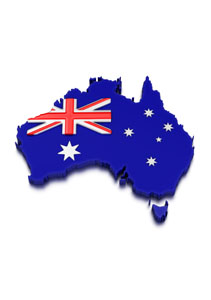 The Australian Therapeutic Goods Administration describes kava, also known as kava kava or Piper methysticum, as a member of the pepper family that has traditionally been cultivated by Pacific Islanders for use as a social and ceremonial drink, which is traditionally either ground or chewed up and mixed with water or coconut milk.
The Australian Therapeutic Goods Administration describes kava, also known as kava kava or Piper methysticum, as a member of the pepper family that has traditionally been cultivated by Pacific Islanders for use as a social and ceremonial drink, which is traditionally either ground or chewed up and mixed with water or coconut milk.
South Pacific producers of kava were delighted at the publication of a World Health Organization report declaring kava to be a safe product (although they feel that it is one that should be available on prescriptions and not over the counter in an attempt to better monitor its use).
Fiji Kava Council chairman Ratu Josateki Nawalowalo said that as far as the kava industry in Fiji and the Pacific was concerned, this was a major breakthrough.
Here in Australia there was less welcome news. The Australian Government decided to ban the import of kava, apart from small quantities for personal use, as part of its campaign to stamp out child abuse in Aboriginal communities.
 According to a statement by Health Minister Tony Abbott and Customs Minister David Johnston announcing the ban, “kava abuse has become an increasingly serious problem in indigenous communities over recent years with the health effects becoming more severe in communities where kava use is not traditional and where excessive consumption occurs.”
According to a statement by Health Minister Tony Abbott and Customs Minister David Johnston announcing the ban, “kava abuse has become an increasingly serious problem in indigenous communities over recent years with the health effects becoming more severe in communities where kava use is not traditional and where excessive consumption occurs.”
Kava was originally introduced to the NT back in the 1980s in an effort to limit alcohol abuse; as a kind of methadone for alcoholics, but it instead became used and then abused as supplement rather than a substitute, so many feel that Mr. Abbott’s desire to to ban it in the Territory is understandable, but a ban across Australia seems a bit excessive and irresponsible.
What is not certain is whether authorities have considered the consequences of their actions in other parts of Australia where the use of kava instead of alcohol is prevalent among islander communities, and has actually reduced domestic violence, car crashes, and a series of other accidents caused by over-consumption and abuse of alcohol. There are many people in urban Australia who would feel happier meeting a kava-happy islander in the street rather than an intoxicated one, but many now fear that all of the gains in recent years will now be lost, right on the heels of the World Health Organization’s announcement.





